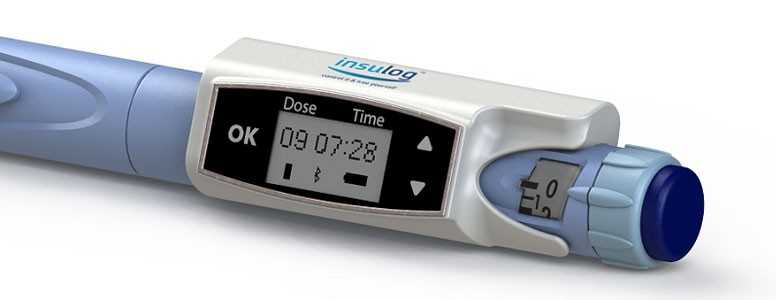A new Bluetooth insulin dose tracker, called Insulog, can be fitted onto most existing insulin pens to prevent dose errors in people with type 1 diabetes and insulin-treated type 2 diabetes.
The device, created by a Tel Aviv-based startup, is the object of an online crowdfunding campaign recently launched on Indiegogo.
CEO Menash Michael, who has had type 1 diabetes for 30 years, designed Insulog after he accidentally over-injected himself with insulin back in September 2013 and ended up requiring emergency assistance.
Michael realised that technology helping people to stay vigilant about their insulin intake was non-existent and decided to create his company in June 2013 to build it.
The smart insulin tracker device targets an unmet need among people with diabetes, as many still enter the data for their insulin use manually.
The first prototype of Insulog came out in February 2015 and an upgraded version was released in April this year.
Insulog has a battery that lasts between five and six days and can be used with different disposable insulin pens, including Flexpe, Solostar, Kwikpen and the FlexTouch pen.
Smart sensors around the edges of the device record vibrations when the dial for the number of insulin units is turned. An algorithm then analyses the clicks to log the amount of insulin injected in each dose.
The next time the device is turned on for a new injectio, Insulog displays data from the previous dose, as well as a listing of time between doses.
It can be paired with a user’s mobile phone via Bluetooth to synchronise insulin dose data and injection history on the Insulog app. The app can also be used to record blood sugar readings before each injection.
Simpler versions of insulin injection trackers exist, such as Timesulin and the Dublin-based InsulCheck.
The synchronisation with a mobile phone feature of Insulog goes beyond the other dose tracking devices currently on the market and can help people on injections to be more aware of how much active insulin they have in their body.
In addition to that, the final prototype should give users the possibility of transmitting a full history of the Insulog data to the cloud, allowing the patient to then share it with their doctor, for example.
The patent for this technology and the smart sensors is still pending and the Indiegogo campaign has only collected $7,865 out of the $40,000 needed to start mass-producing Insulog.
If the project gets fully funded within the next two months, the production is expected to begin in April 2017 and Insulog could be commercially available by July 2017.








